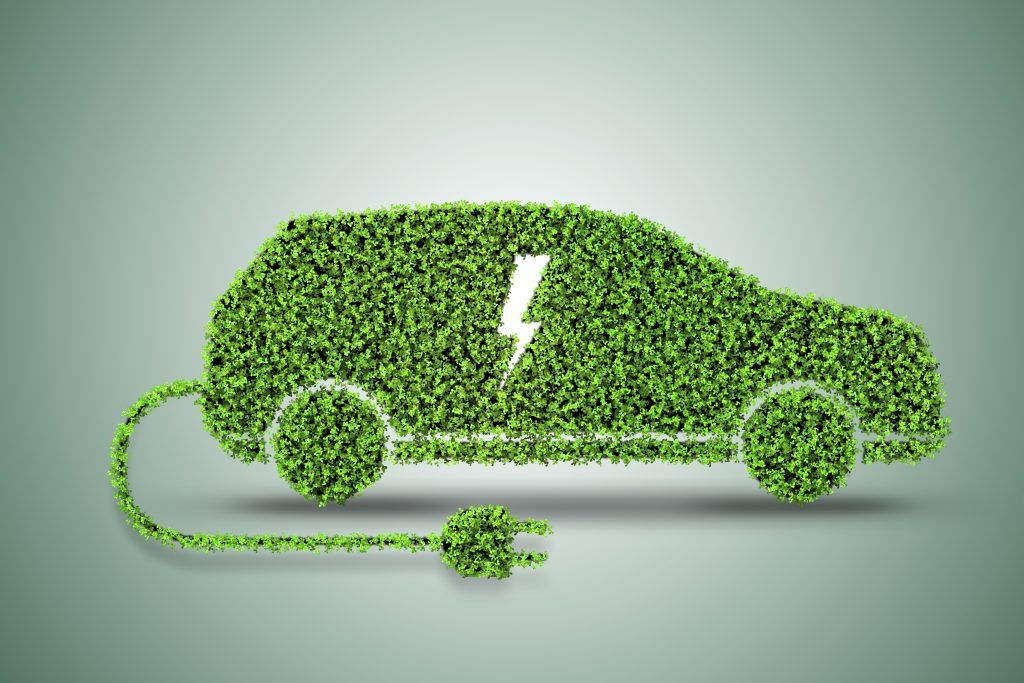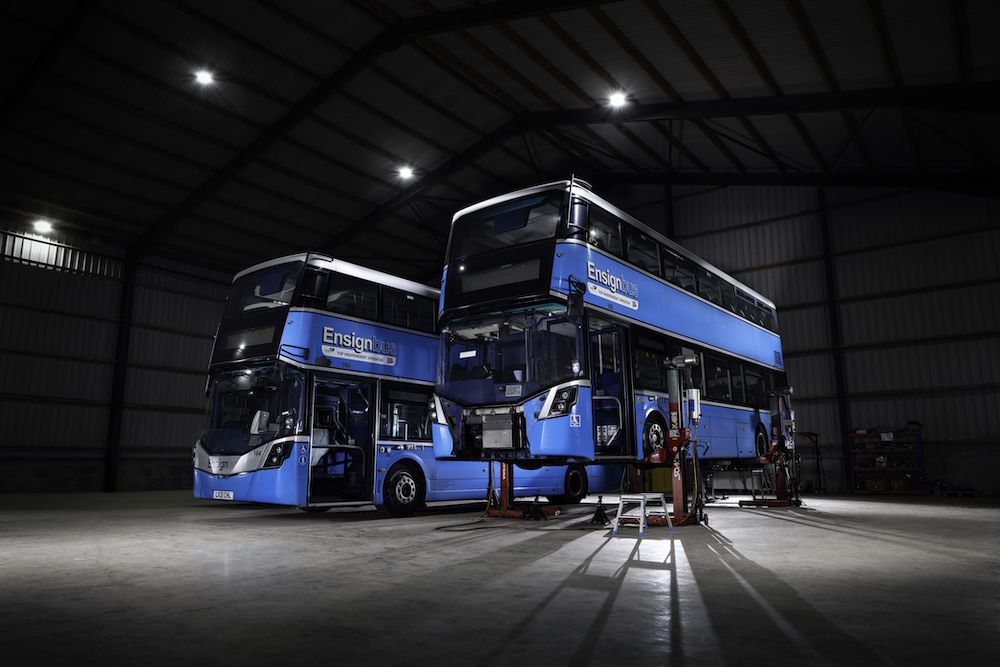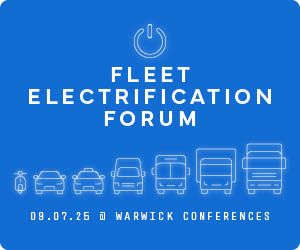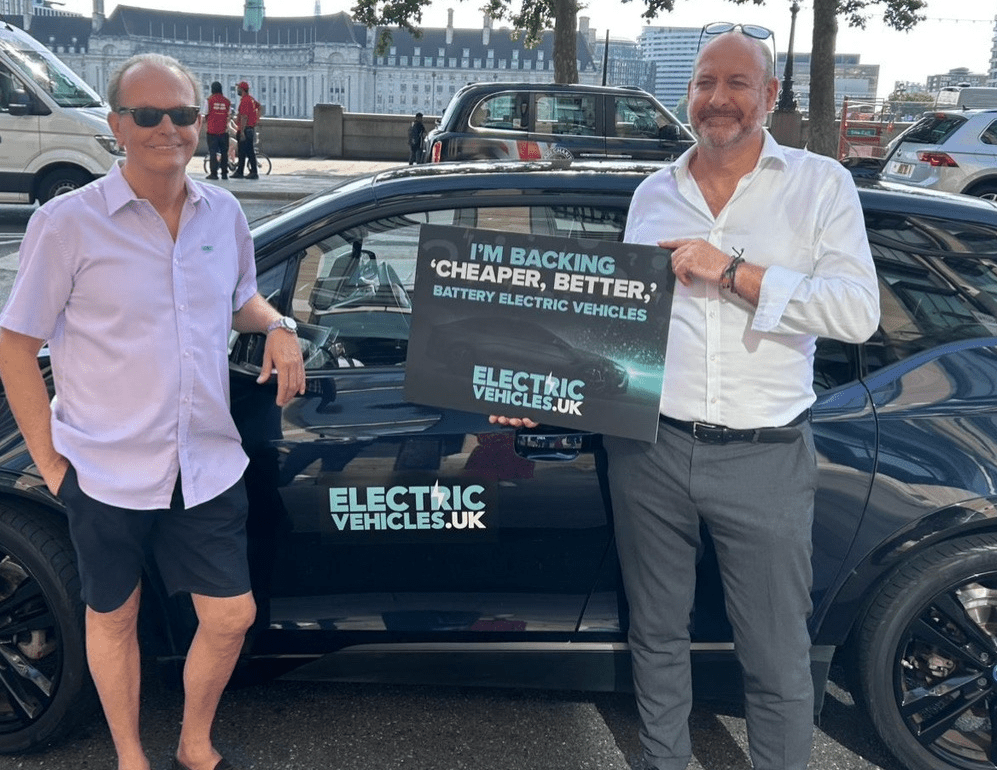The UK government has announced today (14 June) that it is closing the plug-in car grant scheme for electric cars and plans to focus on improving charging infrastructure.
The scheme has succeeded in creating a mature market for ultra-low emission vehicles, helping to increase the sales of fully electric cars from less than 1,000 in 2011 to almost 100,000 in the first five months of 2022 alone.
Battery and hybrid electric vehicles (EVs) now make up more than half of all new cars sold and fully electric car sales have risen by 70% in the last year, now representing 1 in 6 new cars joining UK roads.
The government has always been clear the plug-in car grant was temporary and previously confirmed funding until 2022-23. Successive reductions in the size of the grant, and the number of models it covers, have had little effect on rapidly accelerating sales or on the continuously growing range of models being manufactured.
Due to this, the government is now refocusing funding towards the main barriers to the EV transition, including public charging and supporting the purchase of other road vehicles where the switch to electric requires further development.
To continue the government’s drive towards net zero and ensure effective use of taxpayer funds, £300 million in grant funding will now be refocused towards extending plug-in grants to boost sales of plug-in taxis, motorcycles, vans and trucks and wheelchair accessible vehicles, as announced in the autumn statement.
The shift in focus will also help allow government funding to target expanding the public chargepoint network, helping to eradicate “range anxiety” and ensure the transition to zero-emission transport is easy and convenient for all drivers across the UK. The government has already committed £1.6 billion to building the UK’s public chargepoint network.
All existing applications for the grant will continue to be honoured and where a car has been sold in the 2 working days before the announcement, but an application for the grant from dealerships has not yet been made, the sale will also still qualify for the grant.
Transport Minister Trudy Harrison said: “The government continues to invest record amounts in the transition to EVs, with £2.5 billion injected since 2020, and has set the most ambitious phase-out dates for new diesel and petrol sales of any major country. But government funding must always be invested where it has the highest impact if that success story is to continue.
“Having successfully kickstarted the electric car market, we now want to use plug-in grants to match that success across other vehicle types, from taxis to delivery vans and everything in between, to help make the switch to zero emission travel cheaper and easier.
“With billions of both government and industry investment continuing to be pumped into the UK’s electric revolution, the sale of electric vehicles is soaring. We are continuing to lead the way in decarbonising transport, with generous government incentives still in place, while creating high-skilled jobs and cleaner air across the UK.”
The government’s measures to support the uptake of electric cars over the past decade have helped to exceed electric car projections, with 39,000 new EV registrations in March 2022 – more than in the whole of 2019. Since its inception in 2011, the government’s plug-in car grant has provided over £1.4 billion and supported the purchase of nearly half a million clean vehicles.
A new public evaluation report has been published today highlighting while the plug-in car grant was vital in building the early market for electric vehicles, it has since been having less of an effect on demand, with other existing price incentives such as company car tax, continuing to have an important impact. The report also found the plug-in van market will benefit from grant incentives more to support businesses and their fleets in making the switch.
Industry reaction:
EVA England CEO, James Court, said: “We are disappointed by the removal of the grant, in a move that comes before EVs reach price parity with ICE vehicles, widely expected to happen in the next few years.
“The end of the Plug-in Grant was signalled last year, but we hoped for a Treasury reprieve during a cost-of-living crisis, with EVs offering consumers a way of insulating themselves against sky high petrol and diesel costs. However, the grant is not the only policy option, and we hope to see government implement policies that support the uptake of EVs, such as a strong Zero Emission Vehicle (ZEV) Mandate, reducing VAT on non-domestic charging and strengthening the charging infrastructure.”
Gill Nowell, Head of Electric Vehicles, LV= General Insurance and ElectriX, said: “The withdrawal of the plug-in car grant comes as no surprise, however we must ensure that other mechanisms are in place to encourage more people to make the switch to an electric car. It’s true that the new registration numbers are encouraging for EVs, but they still only constitute a small percentage of the total car parc in the UK. LV= research shows that 45% of people across the UK are put off buying an electric car due to the higher upfront sticker price. This is why total cost of ownership is so important. We know through the LV= Electric Car Cost Index that electric cars can be cheaper over a four year lease term or seven years of outright ownership, and all electric cars are almost 50% cheaper to run. However we do need to reach price parity with petrol and diesel cars. It is to be hoped that the Zero Emission Vehicle Mandate, that will require car makers to sell a certain percentage of electric cars from 2024, will drive us towards price parity.
“In parallel, we need to make sure that public charging infrastructure meets the needs of both current and future EV drivers. Government commitment on this front is to be welcomed, although Government could look at VAT rates on public charging to make it fairer for those people who cannot charge at home and are dependent on public charging to get from A to B. Underpinning all of this must be consistent and accessible information for people who are considering making their next car electric. The road ahead is electric, but we have a long way to go to ensure that electric cars are more affordable to more people.”
Mike Hawes, SMMT Chief Executive, commented: “The decision to scrap the Plug-in Car grant sends the wrong message to motorists and to an industry which remains committed to Government’s net zero ambition. Whilst we welcome government’s continued support for new electric van, taxi and adapted vehicle buyers, we are now the only major European market to have zero upfront purchase incentives for EV car buyers yet the most ambitious plans for uptake. With the sector not yet in recovery, and all manufacturers about to be mandated to sell significantly more EVs than current demand indicates, this decision comes at the worst possible time. If we are to have any chance of hitting targets, government must use these savings and compel massive investment in the charging network, at rapid pace and at a scale beyond anything so far announced.”
Mike Coulton, EV Consultant at Volkswagen Financial Services UK, commented: “Whilst it should not come as a surprise to see the Government have brought to a close the Electric Vehicle Plug-In Car Grant (PICG), it is nonetheless hugely disappointing that more is not being done to encourage and support lower-income households in the transition to EVs.
“Maintaining or even increasing the PICG for the least expensive EVs to make them more affordable, and encourage manufacturers to produce electric cars at a lower price-point, could have been a strong incentive to help adoption for this sector of the market. This in turn would help to remove older and dirtier ICE (internal combustion engine) vehicles in the same way that scrappage schemes have successfully done in the past.
“That said, the Government’s focus on further improving public charging, whilst still incentivising adoption in other areas of the vehicle market such as LCVs is to be welcomed and encouraged. We would ask that further clarity is urgently provided in key areas, such as BIK rates beyond 2025, and a realignment of the AER rates to reflect the costs of charging an EV away from home, for those who cannot make use of a cheaper overnight electricity tariff.”
Andy Eastlake, Zemo Partnership’s Chief Executive, said: “With the rapid growth in demand for EVs over the last year or more, the grant to support plug-in car sales was always going to end sooner rather than later.
“Demand for EVs is currently far outstripping supply so it’s right to consider where limited funds are best directed to help encourage the transition. There remain, of course, very many compelling reasons to buy or lease new EVs. Total cost of ownership (TCO) models already show that EVs are cheaper overall after a few years for many drivers.
“The electric car market is moving rapidly towards maturity and it’s right that the focus of public support is moving to vans, trucks, taxis and motorcycles which are still in their take-off phases with a much wider range of products now becoming available.
“Official support is also re-focusing on ensuring that the UK’s EV charging infrastructure is able to meet the rapid growth in demand from all vehicle types in the period to the end of sale of ICE cars and vans in 2030/5 (and other vehicle types by 2040, or earlier).
“We also need to ensure that we maximise the benefits of the transition for EV drivers and the UK’s energy sector by seizing the opportunities presented by ‘smart charging’ to balance electricity demand over the day, reducing costs and EV charging prices. The work of the Zemo Partnership-convened EV Energy Taskforce has shown the gains that can be achieved through the widespread adoption of smart charging as well as the benefits that will be gained through a well-managed, collaborative transition, with targeted funding to stimulate the market.”
Motoring broadcaster and founder of the FairCharge campaign Quentin Willson said: “The Plug-in Car Grant helped kickstart the UK’s stellar EV revolution – but we’re not finished yet. Millions of drivers still can’t afford electric cars. FairCharge wants the Department for Transport and HM Treasury to help make EVs more affordable so lower income demographics will benefit from much lower fuel bills and cleaner air. We will be pushing for an ambitious ZEV mandate to drive investment and low-cost funding mechanisms like the interest-free loan policy now being offered by the Scottish Government. EVs must be for the many, not the few.”
Image: Shutterstock.













